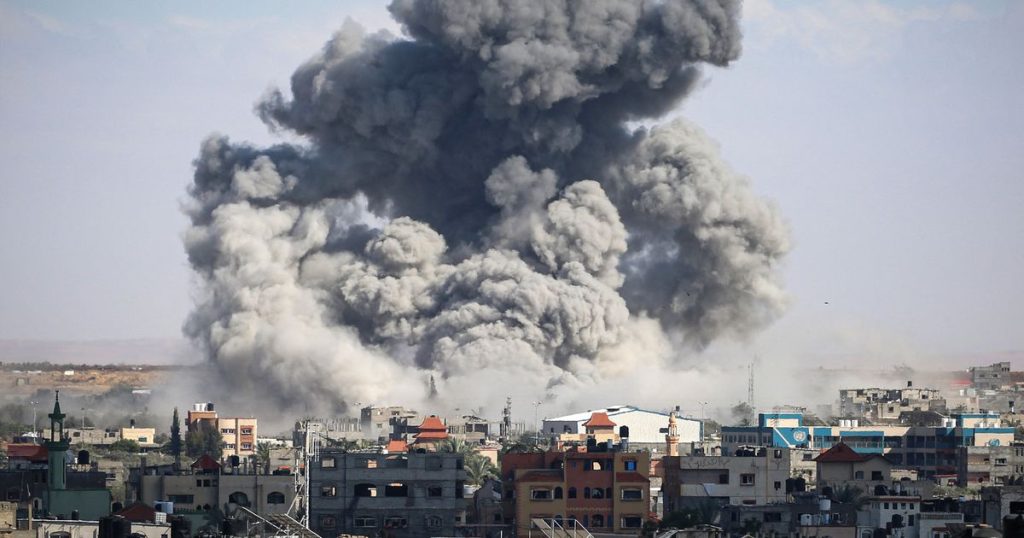Humanitarians from various aid groups have refused to abandon Palestinians in Gaza amidst Israel’s evacuation order for over 100,000 people in Rafah ahead of a planned ground invasion. The city serves as a vital aid hub due to its border crossing with Egypt, which is the main route for aid to enter the enclave. Despite the dangers posed by the imminent ground offensive, aid workers vow to continue providing assistance to Gazans who are already experiencing civilian casualties from Israeli airstrikes.
The United Nations agency for Palestinian refugees (UNRWA) has declared that they will not leave behind the population of Rafah, who are seeking shelter in the city. Israel has previously accused UNRWA of assisting Hamas militants, leading to a loss of funding, despite investigations showing no evidence of these claims. The agency remains committed to providing aid to the people in Rafah and stresses the devastating consequences of an Israeli offensive on the 1.4 million residents of Gaza.
Israel has ordered Palestinians in Rafah to evacuate to supposed safe zones in al-Mawasi and Khan Younis, areas that have been heavily bombarded in the past and are not equipped to handle an influx of refugees. Despite Israeli assurances of aid services in these locations, many residents and aid workers have expressed doubts about the safety and feasibility of relocating to these areas. The destruction caused by Israeli airstrikes and raids in Khan Younis raises concerns about the lack of infrastructure and safety for incoming refugees.
The health care crisis in Gaza worsens as Israeli forces make it difficult for medical workers to treat Palestinians due to the destruction of hospitals and clinics. Pregnant women and new mothers, already disproportionately affected by the daily bombardments, face increased risks in the event of an invasion of Rafah. The looming threat of an attack on the city endangers the lives of tens of thousands of pregnant women who rely on the last functioning health facilities in the area.
Children in Rafah are at the edge of survival as they make up a significant portion of the population in the city. Many have been repeatedly displaced during the ongoing conflict and are currently sheltering in tents. With limited access to food, water, and medicine, the 600,000 children in Rafah face catastrophic risks if a large-scale military operation begins. They are already bearing the brunt of the military offensive, with thousands of children dead or injured as a result of the attacks.
Despite criticism from humanitarian groups and allies, including the United States, Israel remains determined to move forward with the planned invasion of Rafah. Hamas leaders have accepted a cease-fire proposal, leaving it up to Israel to decide whether to agree to a deal to end the violence. The situation in Gaza remains precarious, with civilians facing the ongoing threat of violence and displacement, as aid workers and humanitarians continue to provide assistance to those in need.















